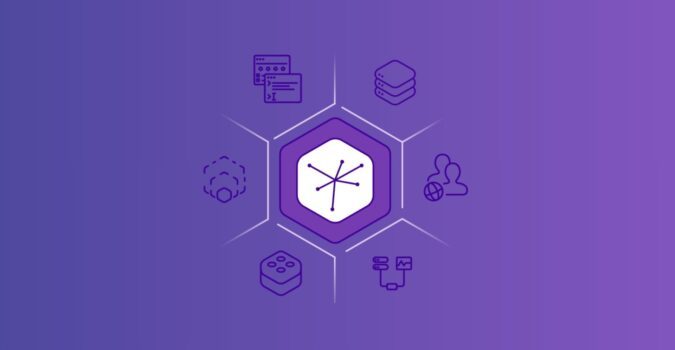How AI Is Redefining Software Development
Artificial intelligence software development is transforming how digital products are built and deployed. With capabilities in machine learning, natural language processing, and computer vision, AI is enabling systems to learn and evolve without manual reprogramming.
This shift means software can now deliver predictive insights, adapt to user behavior, and automate complex tasks. Businesses have already started to leverage AI to break through technical limitations and gain a strategic advantage in a rapidly changing market. A 2024 Gartner report cites that businesses increased AI investments as a strategic advantage, with 61% of businesses planning to increase their technology budget, and 92% looking to adopt AI-powered solutions in a cost-conscious environment.
In this article, we’ll explore how artificial intelligence software development is powering next-gen innovation. From enterprise-grade platforms to custom-built applications, we’ll examine the key innovations, emerging use cases, and the strategies needed to scale AI-driven solutions that deliver real business impact.
What Is Artificial Intelligence Software Development?
Artificial intelligence software development involves designing, building, and deploying systems that simulate human intelligence through data-driven algorithms. These systems go beyond simple logic; they learn from data, reason through problems, perceive patterns, and understand language.
The hallmark of AI development is adaptability. Unlike traditional software, which operates strictly within hard-coded rules, AI models evolve. As they ingest more data, they refine their behaviors, improve accuracy, and become more adept at handling new scenarios. This makes them ideal for environments that demand responsiveness, personalization, and scale.
What separates AI from earlier digital solutions is its capacity for autonomy. Trained on large, often unstructured datasets, these systems can identify anomalies, deliver insights, and optimize performance dynamically. They shift software from being a passive tool to an active participant in decision-making and problem-solving.
Key technologies driving AI software development include:
- Machine Learning (ML): A core branch of AI that uses statistical techniques to enable software systems to improve their performance over time without being explicitly programmed. ML powers features like recommendation engines, dynamic pricing, and fraud detection.
- Deep Learning (DL): A more advanced subset of ML, deep learning employs artificial neural networks modeled after the human brain. It excels in processing unstructured data like images, audio, and video, and is used in autonomous driving, language translation, and facial recognition.
- Natural Language Processing (NLP): This area of AI focuses on enabling machines to interpret, generate, and respond to human language in a meaningful way. NLP powers chatbots, sentiment analysis, automated transcription, and real-time language translation tools.
- Computer Vision (CV): Computer vision enables machines to interpret and act on visual information with precision and speed. It’s used in diverse applications like facial recognition, medical image diagnostics, object detection in retail, autonomous navigation systems, and quality control in manufacturing.
Together, these capabilities power everything from self-driving vehicles and healthcare diagnostics to real-time fraud detection, intelligent virtual assistants, and hyper-personalized marketing platforms. As AI continues to evolve, it will serve as the engine behind the next wave of digital innovation.
4 Core Innovations in AI Software Development
From reshaping digital experiences to accelerating internal workflows, AI is fueling a wave of innovation that’s more scalable, adaptive, and user-centric. Organizations are integrating AI into every layer of their software architecture to gain a competitive edge, reduce manual overhead, and future-proof their tech stacks.
Here are some key innovations shaping the future of artificial intelligence software development:
1. Generative AI Models
AI models like ChatGPT and DALL-E can generate content, including text, images, and code, based on simple inputs. These advanced tools are transforming how teams approach creativity, reducing the manual burden of content production while enabling rapid iteration and increased velocity. Even Hollywood is looking into how generative AI can enhance creative output. In March 2025, ChatGPT screened 11 short films made with Sora by independent filmmakers to explore the limitations of the tools while hinting at their potential. For product teams, generative AI streamlines marketing assets, code scaffolding, UI prototyping, and other resource-intensive workflows.
2. Autonomous Decision-Making
Modern AI systems are built to evaluate data-rich, dynamic environments and make decisions without constant human oversight. This enables high-stakes industries, such as autonomous vehicles, financial trading, and supply chain logistics, to operate with more speed, precision, and adaptability than ever before. These systems analyze variables in real time to identify optimal actions, flag exceptions, and adjust course as needed.
3. Real-Time Personalization
Today’s users expect experiences tailored to their unique needs. AI empowers applications to deliver real-time personalization by analyzing behavioral patterns, preferences, contextual signals, and usage data across devices and environments. Whether it’s e-commerce recommendations, adaptive learning platforms, or customized B2B dashboards, this capability drives higher engagement, loyalty, and outcomes.
4. AI-Augmented Development
Software development itself is evolving with AI integration at every stage. Tools like GitHub, Copilot, and automated QA frameworks support engineers by anticipating coding needs, flagging bugs early, and streamlining testing processes at scale. These AI-powered environments accelerate delivery timelines, reduce development cycles, enhance code quality, and free up teams to focus on solving more strategic challenges.
These practices don’t just support successful AI adoption. They lay the foundation for long-term digital agility. By aligning AI initiatives with business objectives, organizations can stay ahead of disruption, reduce technical debt, and continuously deliver value across the enterprise.
What Are the Best Enterprise Strategies for AI Adoption?
Enterprises looking to harness artificial intelligence software development need more than just technical talent. They need a clear, enterprise-wide strategy that aligns people, processes, and platforms with the evolving demands of AI. Successful adoption means rethinking data pipelines, organizational workflows, and long-term scalability. Here are the best practices for integrating AI into enterprise software development:
Assess AI Readiness
Start with a clear view of your data landscape. Ensure data is clean, well-structured, and accessible. Strong data governance, integrated pipelines, and cloud infrastructure lay the groundwork for dependable AI outcomes and long-term scalability.
Build Cross-Functional Teams
AI thrives on collaboration. Form teams that bring together data scientists, engineers, designers, product managers, and business leaders. Unified goals, shared metrics, and early alignment help prevent silos and accelerate value delivery.
Focus on Scalable Architecture
Modern AI systems must handle growing data volumes and complexity. Prioritize modular, application programming interface (API)-first, cloud-native platforms that enable real-time processing and distributed computing, ensuring adaptability as your needs evolve.
Prioritize Ethics and Compliance
Trust is essential. Embed ethical principles such as fairness, transparency, and accountability into your development lifecycle. Stay ahead of regulations like the General Data Protection Regulation (GDPR) and the California Consumer Privacy Act (CCPA) with proactive compliance, clear documentation, and regular audits.
By grounding AI initiatives in strong infrastructure, collaborative culture, and responsible governance, enterprises can unlock resilient, future-ready innovation that scales with confidence.
Custom Software Development Solutions with AI
Artificial intelligence enhances custom software by enabling systems to evolve with user needs, workflows, and business priorities. Unlike off-the-shelf tools, AI-infused custom applications learn and adapt over time, solving today’s challenges while anticipating tomorrow’s.
By embedding AI into bespoke solutions, businesses gain intelligent systems that are responsive, proactive, and strategically aligned, driving smarter customer engagement, operational efficiency, and innovation at scale.
AI adds significant value through:
- Advanced Personalization: AI tailors user experiences in real time based on behavior, context, preferences, and historical engagement. This allows businesses to deliver hyper-relevant content, product recommendations, and features that boost satisfaction and conversion.
- Operational Efficiency: Intelligent automation reduces manual work and accelerates complex processes by identifying bottlenecks and suggesting optimizations. This frees up human resources for strategic tasks while minimizing operational costs and error rates.
- Predictive Analytics: AI provides deep foresight into customer behavior, operational risks, and emerging market trends using historical and real-time data. These insights enable better forecasting, faster decision-making, and proactive strategy development.
- Continuous Optimization: AI learns from real-time usage patterns and business KPIs to recommend performance improvements, detect issues before they escalate, and optimize features for evolving user needs. This leads to a more resilient and future-ready software ecosystem.
Whether it’s streamlining operations, driving predictive capabilities, or elevating user experience, AI is a transformative force behind modern custom software development solutions. Its ability to evolve with the business, adapt to shifting conditions, and continuously generate insights makes it indispensable for companies aiming to innovate and scale with confidence.
The AI-Driven Future with Artificial Intelligence Software Development
Artificial intelligence software development isn’t just a tech trend. It’s a fundamental shift in how software is built and scaled. As AI becomes embedded in every layer of digital strategy, businesses that invest now will lead with smarter products, faster innovation, and deeper user insight.
Ready to build what’s next? Let’s explore how AI can power your digital future.



